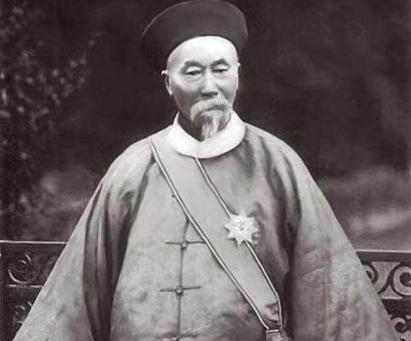December 1, 1884, the fourteenth day of October in the old calendar.
The Qing court awarded the chief instructor of the Beiyang Marine Division and the second treasure star of the German-style Ballantine Second Class, and exhorted him to work hard.
Ballantine was a retired major officer in the German Navy who fought in the American Civil War naval battles. After the outbreak of the Sino-French War, Lang Weili resigned from the post of chief inspector of the Beiyang Marine Division and returned to Britain in order to avoid suspicion. The temporary successor, Ballantine, served in the Beiyang Navy for only 1 year and achieved nothing.
Li Hongzhang commented that this person was partial to his own opinions, disobeyed the dispatch, and made almost no contribution to the Beiyang Navy.

Li
The Qing court approved the request of Zuo Zongtang, the governor of Liangjiang, and ordered the Nanyang Marine Division to send 5 warships and the Beiyang Naval Division to send 4 warships to meet in Shanghai, carrying 8 battalions of Qing troops led by Yang Yuebin to support Taiwan.
December 1, 1885, October 25 in the Old Calendar.
Li Hongzhang sent a letter to Prince Yizhen of Alcohol, and after sea trials, he found that the quality problems of the "Jiyuan" warship reported by Shu Wen and Wang Yongni, the personnel of the embassy stationed in Germany, did not find out the specific cause. It was also said that after the Beiyang was frozen, the ships were led by Ding Ruchang to the south to Xiamen and Penghu for serious training.
Prince Yizhen of Alcohol
December 1, 1894, the fifth day of the first month of November in the Old Calendar
。 At that time, the command of the Beiyang Naval Base, the Weihaiwei defense system, belonged to the Army, but there was no unified coordination of base management and defense agencies. In addition, the bureaus and docks in the naval base are managed by the Beiyang Minister through the Naval Camp Affairs Office, and are not under the dispatch of Ding Ruchang, admiral of the Beiyang Navy. The result is a pluralistic chain of command. After the outbreak of the war, both Dai Zongqian and Zhang Wenxuan demanded that the army be expanded, and the army unit directly guarding the Weihai base reached more than 10,000 people, all of which were not subject to the control of the Admiral of the Beiyang Navy.
Admiral Ding Ruchang of the Beiyang Navy
Dai Zongqian treated his subordinates harshly, withholding soldiers' salaries to enrich themselves, causing dissatisfaction among soldiers. Out of consideration for the defense of Weihai, Ding Ruchang persuaded Dai Zongqian to pay the arrears and divert money from the naval funds to pay Liu Chaopei's Gong army. This not only did not make Dai Zongqian change his mind, but on the contrary, it aggravated the contradiction between the two men, which was very unfavorable for defending Weihaiwei.
After the outbreak of the Sino-Japanese War, the Japanese Navy repeatedly harassed Weihai, but was repelled by the batteries on both sides of the river. After the fall of Lushun on November 22, Dai Zongqian proposed: "Wherever the enemy lands, it is important to draw the Suigong army to rush to arrest him", "allow him to judge the situation according to the situation, and defend at his own discretion", "strangle the danger of the outside world, rather fight and survive, and do not sit still and wait for the trap", and declare the defense of Weihai Fort to Ding Ruchang for "care".
On November 29, Ding Ruchang wrote a letter to Dai Zongqian opposing his opinion of not defending the fort and going to war, and Li Hongzhang also warned Dai Zongqian: "Will the bay and the brigade be destroyed?"
Dai Zongqian
According to the war situation at that time in which the enemy was outnumbered and stubbornly waiting for help, the Weihai Navy and Army should be sincerely united and tightly held, rather than abandoning their positions to take the initiative to attack, otherwise the Japanese army occupying the weihai bay south and north gang batteries would use the forts to attack Liugong Island, resulting in Liugong Island facing the dilemma of land and sea attacks and cold lips and teeth.
Liugong Island during the Beiyang Navy period
Although Li Hongzhang specifically called Ding Ruchang and Dai Zongqian on December 1, ordering Ding Ruchang to take Ding Ruchang's position as right and oppose Dai Zongqian's wave war. However, Dai Zongqian took the words of his boss Li Hongzhang as a bystander, insisted on going his own way, and insisted on acting arbitrarily, which eventually led to a big mistake.
December 1, 1895, the fifteenth day of October in the old calendar.
Zhang Zhidong, the governor of Liangguang, asked that arrangements had been made for the "Fujing" ship to go north, for the "Nanchen" ship to carry troops to run aground in Anhui, and for the remaining ships to be repaired.
On the same day, China received bay brigade members Gu Yuanxun and Long Dianyang arrived in Lushun.